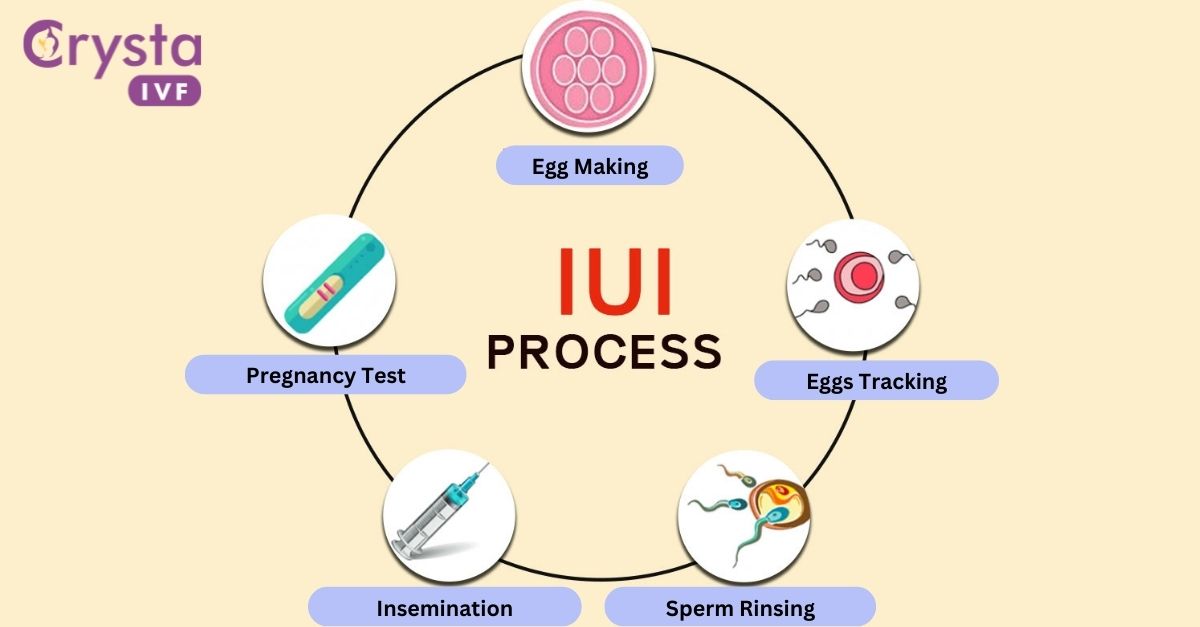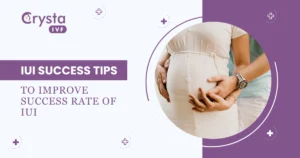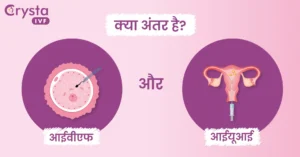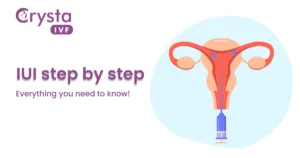Intrauterine Insemination or IUI is one of the most common artificial insemination procedures that help couples experiencing infertility to achieve a successful pregnancy. In this process, the infertility specialist inserts the sperm directly into the maternal uterus. It usually takes place at the time when a woman is put on fertility medications for ovarian stimulation. As compared to other infertility treatments, IUI treatment is considered to be a minimally-invasive Infertility treatment that infertility experts use to help a woman improve her chances of conception.
How does IUI work?
Initially, the sperm is collected and ‘washed’ in a specialized laboratory for sperm concentration and removal of the seminal fluid. The process of sperm collection usually takes around 1 to 2 hours. Fertility specialists perform the IUI treatment at around the time when a woman ovulates. The washed sperm is inserted into the uterus through the cervix with the help of a catheter. As compared to other artificial insemination procedures, IUI treatment is less painful and lasts only for a few minutes. It usually doesn’t have lasting side effects and the patient may experience light bleeding for a day or two.
Whom does IUI work best for?
Before planning to undergo your Intrauterine Insemination procedure you need to understand that IUI doesn’t work for everyone. The good candidates for Intrauterine Insemination (IUI) are:
- Problems with the cervix or cervical mucus
- Coital disorders
- Low sperm count
- Male factor infertility
- Decreased sperm motility
- Unexplained infertility
- Women suffering from mild endometriosis
- Disorders with ejaculation or erection
- Same-sex couples trying to conceive
How successful is Intrauterine Insemination (IUI)?

The success of IUI treatment depends on the number of cycles a patient wishes to undergo. Generally, the IUI success rates for a single cycle range between 10 and 20 percent. As per the research studies, the IUI success rates in India can go up to 80 percent with 3 to 6 IUI cycles. Some of the common factors affecting the success rates of IUI treatment are:
- Age of the couple
- Infertility duration
- Health of the endometrial lining
- Sperm count
- Size of the follicles
Intrauterine insemination cost
The average cost for Intrauterine Insemination (IUI) procedure for each cycle ranges between Rs. 4500 and Rs. 5000. In the world of infertility treatments, IUI is considered to be the most efficient and cost-effective fertility treatment due to high IUI success rates in India. However, there is one more factor that affects the Intrauterine Insemination cost in India. Some of the common factors affecting the cost for Intrauterine Insemination (IUI) are:
- Age of the female partner
- Fertility inducing medications
- Expertise of the doctors
- Location of the IUI centre
Intrauterine insemination side effects
As said above, IUI treatment has fewer side effects as compared to other fertility treatments. Some of the common side effects that the patient may face because of the fertility medications are:
- Ovarian cysts
- A slight discomfort in pelvic
- Tender breasts
- Migraine like headaches
- Painful ovaries
- Bloating
- Nausea and vomiting
You should immediately contact your fertility expert if the symptoms worsen.
Intrauterine Insemination Risks
Apart from the side effects pose by the fertility and ovulation-inducing drugs, the IVF risks also include the following risks:
- Gestational diabetes
- Multiple births
- Premature delivery
- Preeclampsia
What to expect after IUI insemination?
After your IUI you can resume your day as usual. The fertility doctor may prescribe progesterone vaginal inserts for use three days post-IUI. Progesterone helps the body prepare for and maintain a pregnancy should one occur. He/she may also ask you to return in 7 days for a progesterone blood test, and in 14 days for a pregnancy blood test (HCG beta) since implantation generally takes place 6-12 days after ovulation.

When to seek help
One should seek help from fertility professionals when it has been more than 12 months and a couple hasn’t yet achieved conception. Infertility is best treated when diagnosed and treated at an early stage. Improve your chances of IUI success rates by contacting the best IUI doctors and infertility specialists.




